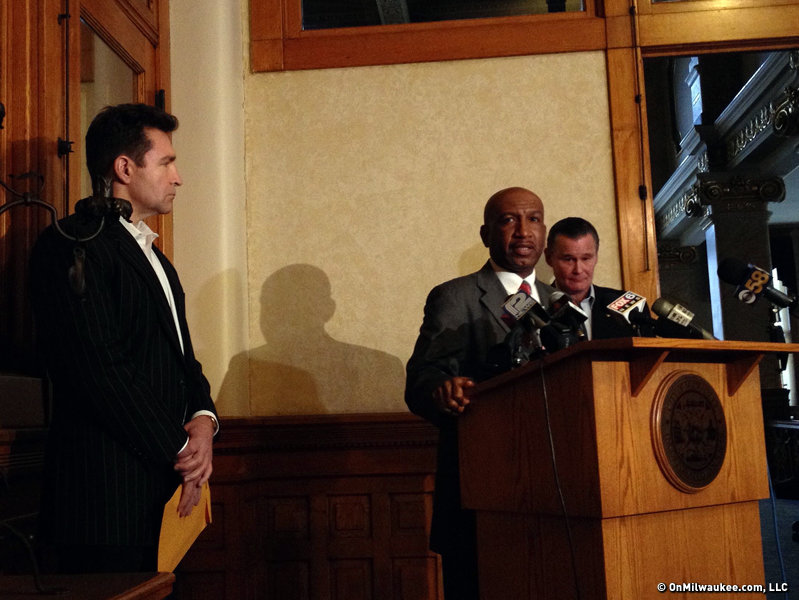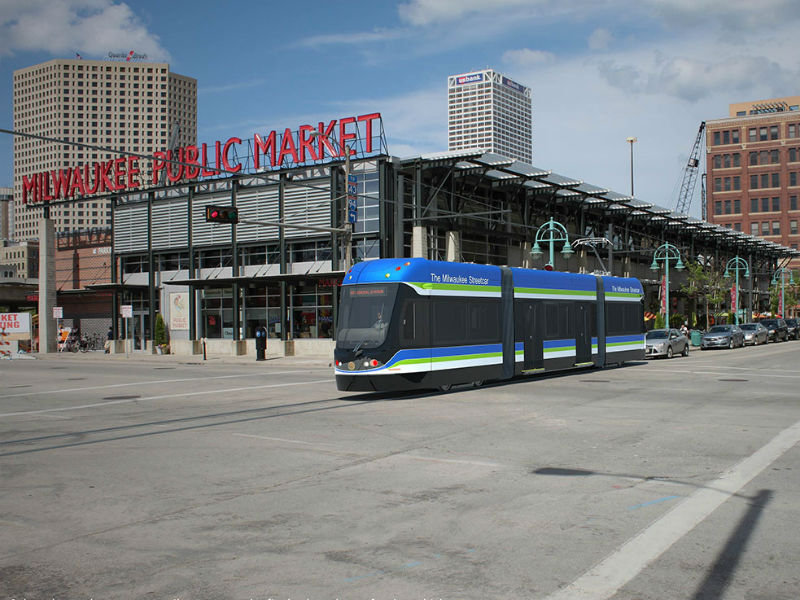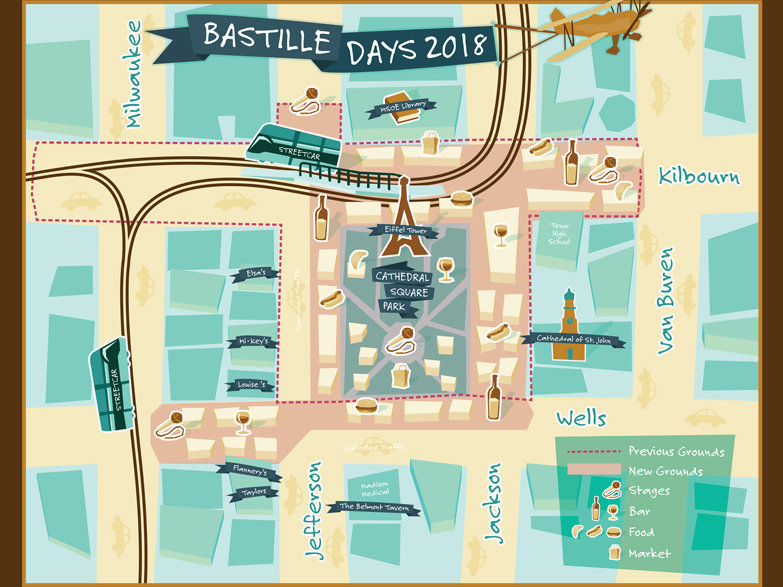A day before the Common Council meets to vote on the Milwaukee streetcar plan, advocates and opponents made their final pushes to gain public support or enough signatures for a referendum.
On the advocate side of the issue, Mayor Tom Barrett detailed his hotly debated streetcar plan to a filled crowd in Appellate Courtroom inside of Marquette University's Eckstein Hall Tuesday afternoon. At the event – a part of Marquette University's "On The Issues" discussion series and moderated by Mike Gousha, a Marquette faculty member and contributing anchor and political analyst for WISN-TV – Barrett presented an informational PowerPoint detailing the rationale behind the plan.
The crux of the presentation was centered around the idea of "building on our momentum," based on the statistic that $5 billion of public and private spending – $2.6 billion in public and private construction, $900 million currently under construction and $1.277 billion planned – has gone into Downtown Milwaukee in the past nine years.
"I want that momentum to continue," Barrett said.
Barrett then elaborated on his thinking behind the streetcar plan.
His arguments included the route's consistency and permanence – "developers, retailers and employers know it's going to be there for the next 10, 20 and 30 years," he noted – the jobs that would come from the route and the construction of it, and its appeal to the growing national and local group of young educated people between the ages of 25 to 34 moving into large metropolitan cities, entering the job market and arriving with large amounts of debt likely delaying the purchase of homes or automobiles.
"What we are seeing nationally is increasingly the young people are moving to closer neighborhoods of the nation's large metropolitan areas, and this migration is fueling economic growth and urban revitalization," Barrett argued. "I like that. I want that continue. We want to be competitive on a national and international scale."
Barrett's presentation then elaborated on the city's status compared to many U.S. cities, noting that Milwaukee has the 21st highest amount of young people living in or near its downtown area and ranks, as well as the 14th densest city in the nation – an important key for a streetcar/rail plan.
In both cases, Milwaukee ranks higher than expected since it's just the 31st largest city in the country. However, Barrett pointed out in both cases that all or a overwhelming majority of the cities above and some closely behind all have streetcar or rail systems.
The mayor noted the streetcar would be a part of a comprehensive transportation strategy that still would include buses, the Bublr bike system and cars. Barrett also made it explicitly clear that he intends to expand the streetcar out from its initial plan.
He closed his presentation discussing the funding for the streetcar, including $55 million in federal Interstate Cost Estimate (ICE) funds – money which Barrett told the crowd can only be used for a streetcar project – $10 million in additional pending federal grants and TIF funding. In total, the project as presented by Barrett would cost $123.9 million and open in late 2018.
The event closed with questions both from Gousha and the crowd, asking why the plan should not have to go to referendum, what's in it for those who do not live in the Downtown area and what a streetcar can offer that a bus transit system cannot.
Prior to the mayor's presentation and discussion at Marquette, Ald. Terry Witkowski, Ald. Jose Perez and Milwaukee County Supervisor Jason Haas held a news conference at City Hall in order to discuss and explore potential expansions to the initial streetcar plan.
"Some from the outskirts of the city have asked why they should support a streetcar downtown," Witkowski said in a press release. "The benefits of this project go far beyond the route, and reach all the way out to neighborhoods like mine on the far south side."
On the other side of the debate, shortly after Barrett's event at Marquette, Ald. Bob Donovan, Ald. Tony Zielinski and Ald. Joe Davis, Sr. (who has proposed an alternative plan to the streetcar) held a news conference just outside the Common Council chamber at City Hall to discuss their opposition to the streetcar.
According to a Milwaukee Business Journal report, opponents are expected to force a delay during tomorrow's Common Council meeting.
The delay would not only push the final vote to Feb. 10, but also allow more time for those against the streetcar to obtain the approximately 31,000 voter signatures due by Feb. 8 to require a referendum on the streetcar. News reports Tuesday said the petition has so far garnered roughly a tenth of the required number of signatures.
As much as it is a gigantic cliché to say that one has always had a passion for film, Matt Mueller has always had a passion for film. Whether it was bringing in the latest movie reviews for his first grade show-and-tell or writing film reviews for the St. Norbert College Times as a high school student, Matt is way too obsessed with movies for his own good.
When he's not writing about the latest blockbuster or talking much too glowingly about "Piranha 3D," Matt can probably be found watching literally any sport (minus cricket) or working at - get this - a local movie theater. Or watching a movie. Yeah, he's probably watching a movie.







